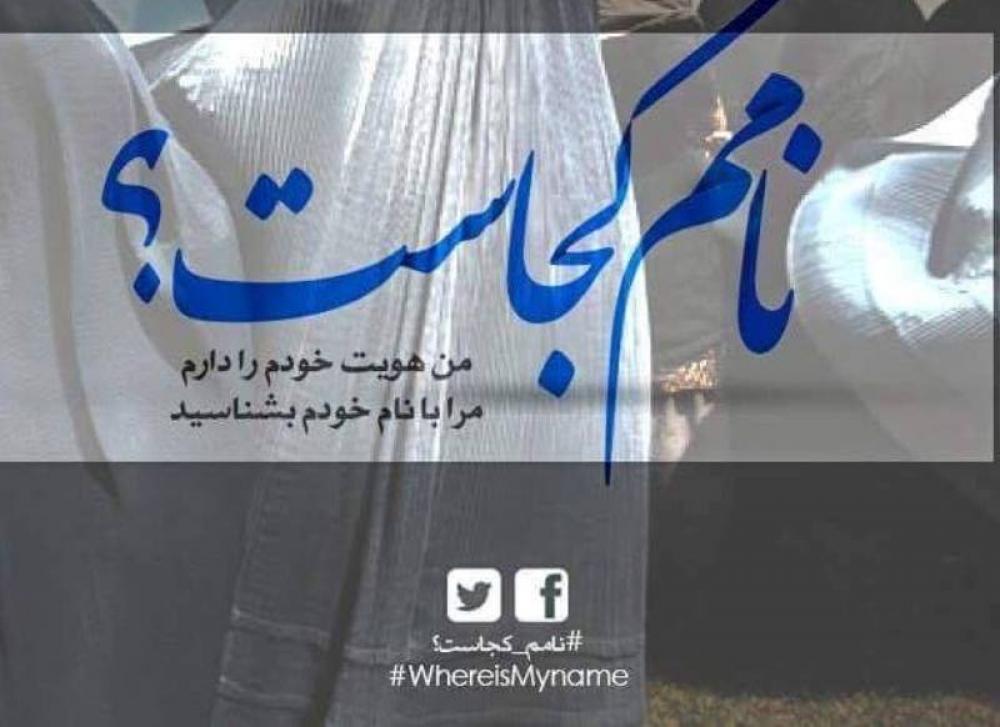Just Earth News | @justearthnews | 26 Aug 2017

It is a grave offence to identify a woman by her name in public in Afghanistan and activists are fighting hard to annul that norm through a social-media campaign, #whereismyname (Where Is My Name).
Typically, an Afghan women is identified in public as 'Mother of children', 'My weak one', 'My goat' or 'My chicken' and in most cases, as 'aunt'.
When my loving father, brothers and nephews are not ashamed of addressing us by our names so neither should you!
— Maihan (@MaihanWali) July 10, 2017
#Whereismyname pic.twitter.com/UhOJL6g54u
The absence of name plays such an important role that it is barred from use even on her grave.
Activists however feel women are to be blamed equally for the lack of status.
Bahar Sohaili, one of the activists spearheading the campaign told The New York Times, "This is just a spark — the posing of a question mostly to the Afghan women about why their identity is denied.'
"The reality is that women also remain silent — they don’t protest this," she added.
Activists are also thinking about spreading the campaign offline.
The campaign has also garnered support from lawmakers and celebrities, who too want the age old stereotype to end.
Renowned Afghani singer Farhad Darya supported the movement and shared on Facebook, "On many occasions in front of a crowd that doesn’t have family relations to me, I have noticed how the foreheads of men sour by what they see as my cowardice in mentioning the name of my mother or my wife.
"They stare at me in such a way as if I am the leader of all of the world’s cowards and I know nothing of ‘Afghan honor and traditions’,” he added.
The campaign has also received its share of flak.
The head of a youth organisation, Modaser Islami took to Facebook to state his dislike towards the campaign.
"The name of my mother, sister and wife are sacred like their head scarf, and it’s a sign of their honor," he said.
Islami added that he will add the names where he sees fit.
.jpg)
Challenging the statement and the prevailing mindset, Sohaili asked if the norm had any religious significance.
According to Afghan sociologist Hassan Rizayee, the rule to not name a woman in public is based on tribal logic.
"According to tribal logic, the important thing is the ownership of a woman’s body," he said, "The body of a woman belongs to a man, and other people should not even use her body indirectly, such as looking at her. Based on this logic, the body, face and name of the woman belong to the man.”
He believes that weakening the tribal culture, by means of social campaigns, one can change the existing law.
Somia Ramish, another prominent activist, argues that the predicament for women was created systematically.
In an online article she wrote, "The child comes out of the mother’s womb, but in no document relating to the child — from infancy to old age — does the mother’s name get registered."
"The interesting thing, however, is that the mother then, out of habit and tradition, becomes identified by the child. The woman whose name has no place in laws all of a sudden becomes ‘the mother of Ahmad’ or ‘the mother of Mahmoud," Ramish said.
Just a few days ago, after a period of sustained struggle, Indian Muslim women rejoiced after a landmark hearing by the country's Supreme Court, who made 'Triple Talaq' (Oral divorce) illegal.
After much debate, a five-judge bench, including India's Chief Justice JS Khehar passed the verdict.
Images: www.facebook.com/pg/namamkojast